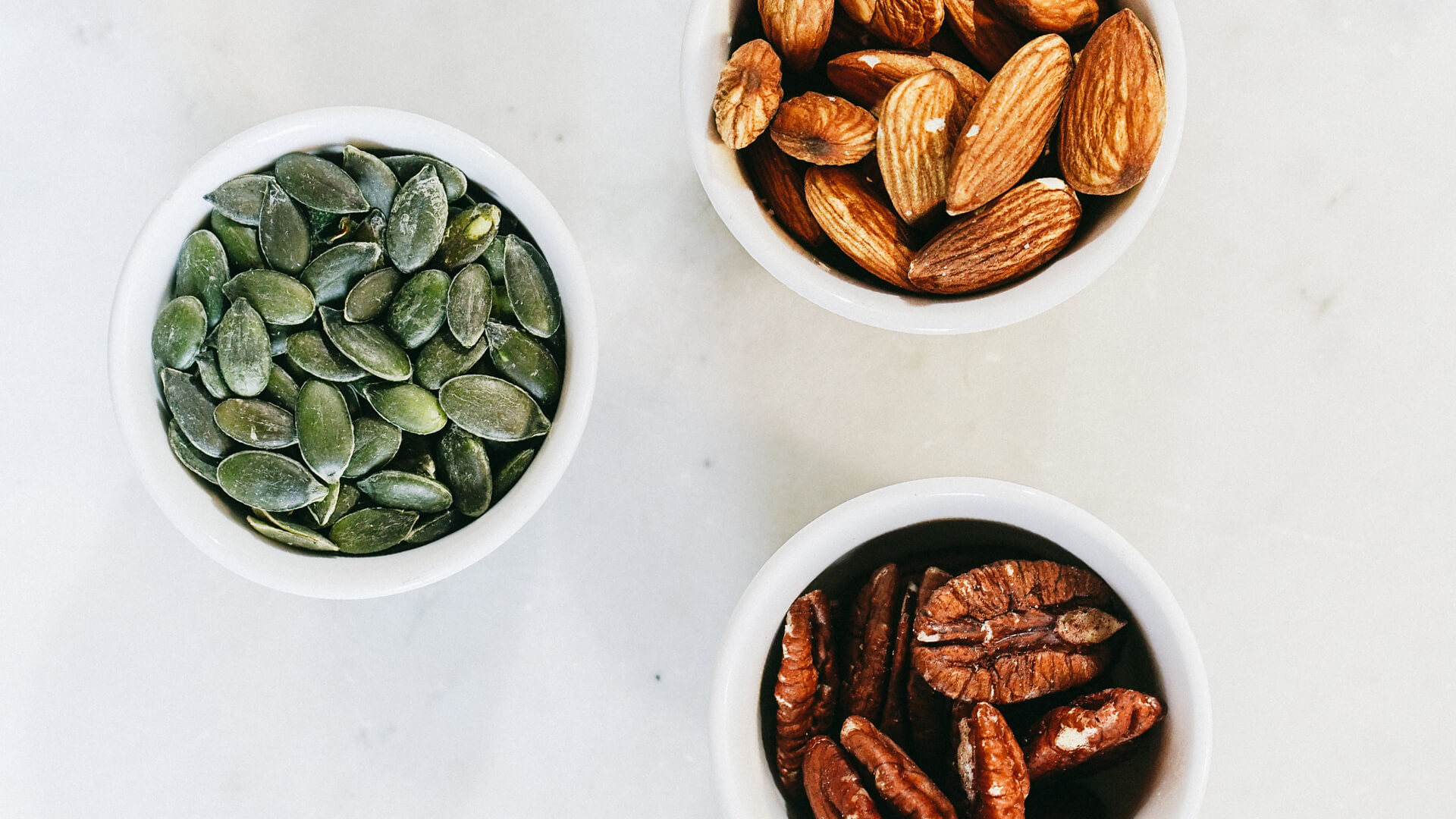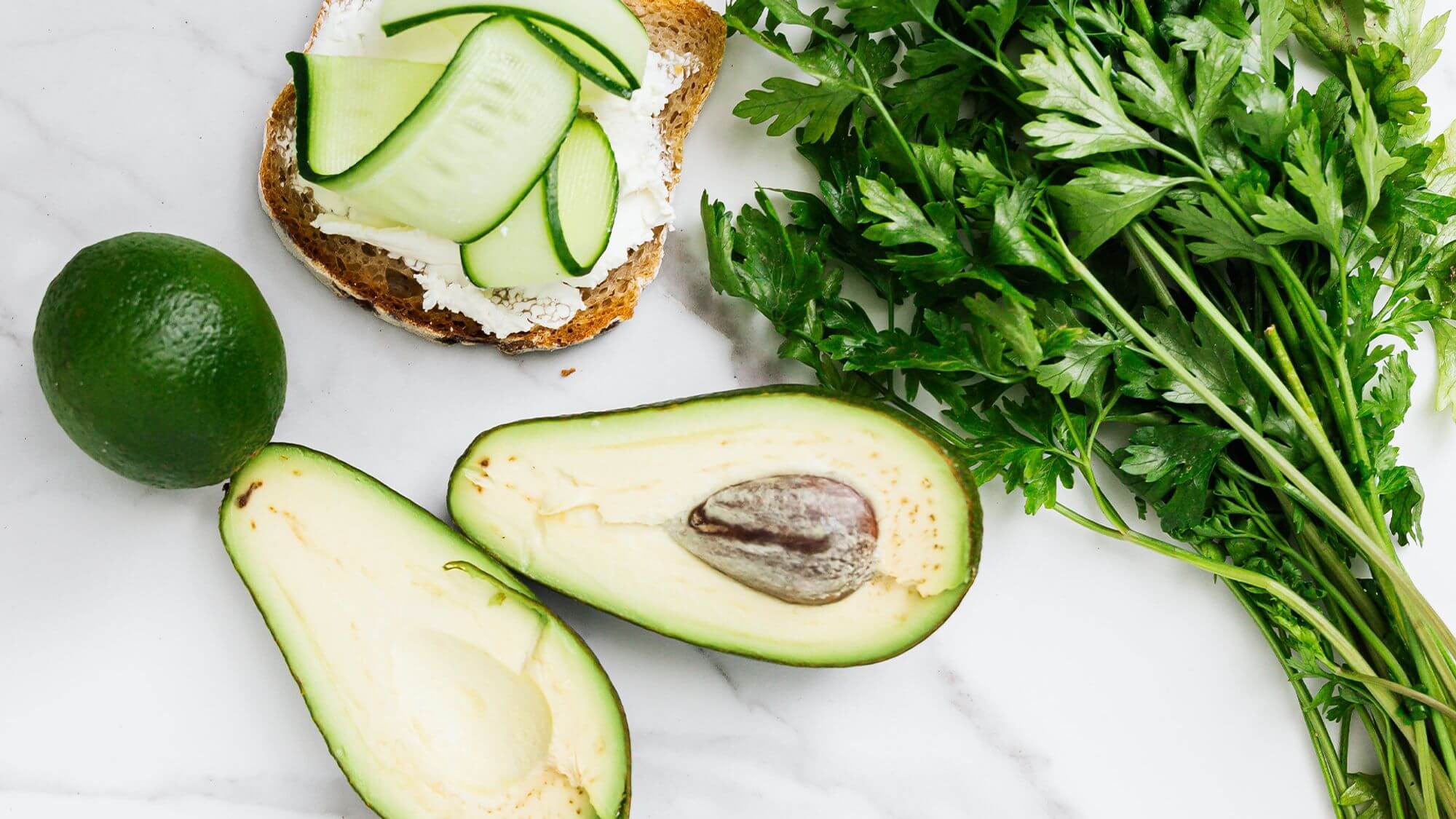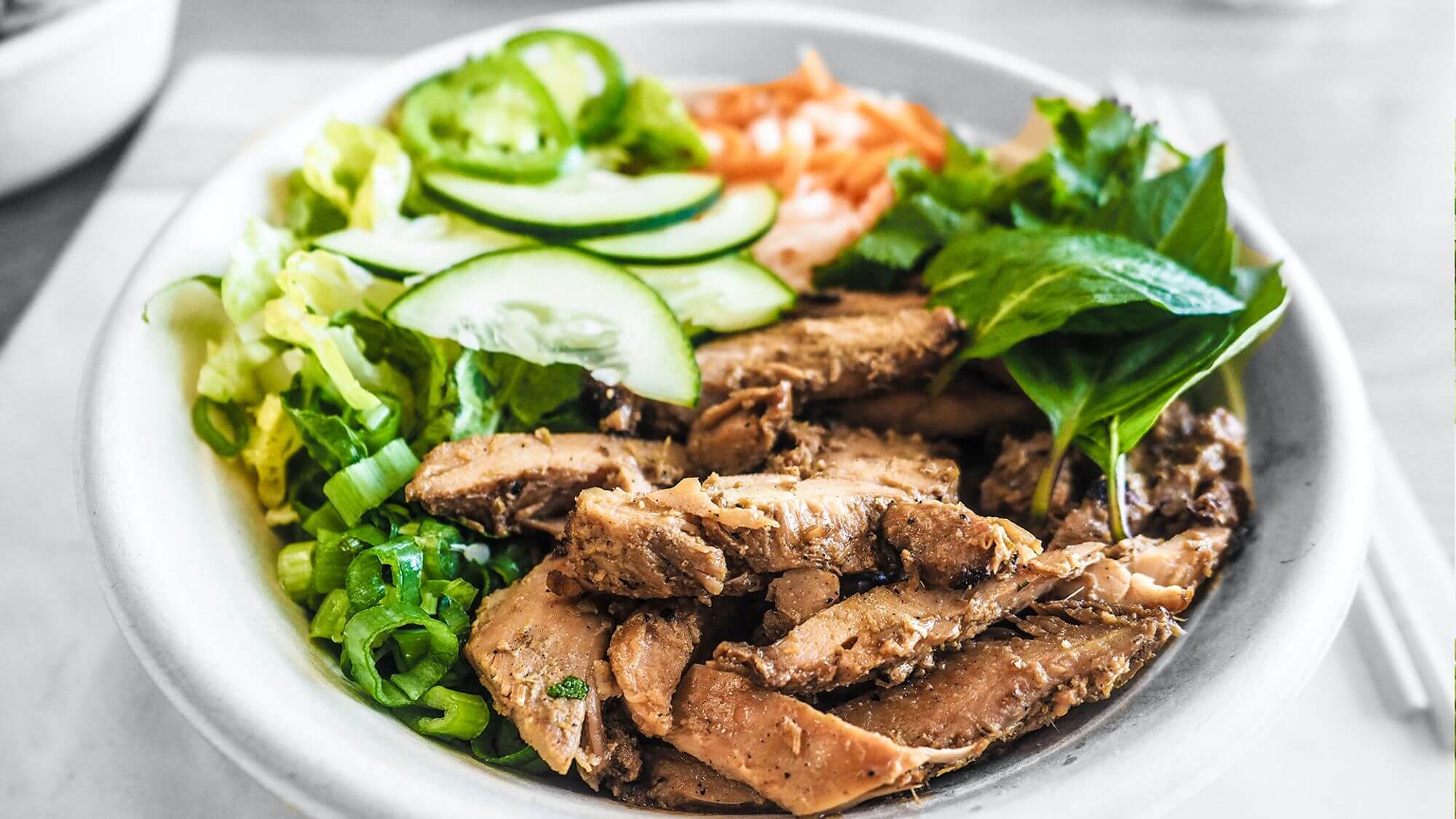For years, gut health took a backseat in wellness conversations, but not anymore. From immunity to energy levels, people are finally waking up to the fact that the gut is the foundation for everything. And with 43% of the UK population experiencing digestive issues at some point in their lives, it’s no surprise that gut health has become a top priority.
If your digestion feels off, your energy levels are low, or you’re dealing with uncomfortable bloating more often than you’d like, your gut might be trying to tell you something.
Luckily, you don’t need a complete lifestyle overhaul—small, consistent changes can help restore balance. From nourishing your body with the right foods to keeping stress firmly at bay, these 10 strategies will help reset your gut so you can start feeling your best again.
Why is gut health important?
Your gut does a lot more than just digest food. It influences how well you absorb nutrients, how strong your immune system is and even how you feel, both physically and mentally, on a daily basis.
At the core of it all is your gut microbiome, a bustling ecosystem of bacteria and other microbes working behind the scenes, mainly in your small intestines, to keep everything running smoothly. But when this delicate balance gets thrown off, dysbiosis starts creeping in alongside a whole host of unpleasant symptoms and potential health problems.
Signs your gut might be out of sync
An unhealthy gut can show up in ways you wouldn’t expect. While bloating, constipation and acid reflux are obvious signs, other red flags include:
- - Low energy levels: Your gut plays a role in producing serotonin and regulating sleep. If you’re always tired, your gut might be struggling.
- - Frequent sugar cravings: An imbalanced gut can encourage sugar-loving bacteria, leading to intense cravings.
- - Skin issues: Acne, eczema and other irritations can be linked to gut inflammation.
- - Unexplained weight changes: Trouble absorbing nutrients can cause weight loss, while an overgrowth of certain bacteria may lead to weight gain.
- - Brain fog and mood swings: An imbalanced gut can contribute to common mental health disorders such as anxiety and depression.
Read our guide “10 Signs of an Unhealthy Gut” to find out more.
The benefits of resetting your gut
Luckily, your gut microbiome is constantly adapting, which means you can improve it with the right changes. A gut reset can:
- - Boost digestion: Say goodbye to bloating and discomfort.
- - Increase energy levels: A healthier gut helps your body absorb nutrients better.
- - Support immunity: Since 80% of your immune system is in the gut, strengthening it can help ward off illness.
- - Improve mental clarity: A well-balanced gut can enhance focus and improve and stabilise mood.

Frive’s Chai Latte Breakfast Pudding
10 ways to reset your gut health
Alongside digestion, your gut works hard to support your immune system, produce serotonin and generally keep you feeling well and healthy. But when it’s out of balance, you’ll definitely know about it. Below are 10 practical ways to restore gut health—all easy to implement and backed by research.
1. Eat more prebiotic-rich foods
Prebiotics are typically resistant starch and high-fibre foods that act like fuel for the good bacteria in your gut, giving them the nutrients they need to grow and stay strong. By feeding the beneficial bacteria, these fibre-rich foods help them thrive and outcompete harmful microbes that can trigger autoimmune illnesses, depression and more.
How to get more prebiotics
- - Add garlic, onions, leeks and asparagus to your meals.
- - Snack on bananas or berries for a gut-friendly boost.
- - Opt for whole grains like oats and barley instead of refined carbs.
Pairing prebiotic-rich foods with probiotic sources (like yoghurt or kimchi) can enhance their benefits, creating the perfect environment for a thriving gut microbiome.
2. Incorporate probiotics into your diet
While prebiotics feed good bacteria, probiotics introduce live bacteria into your gut, helping to maintain a healthy balance. They can be taken in supplement form or via fermented foods like yoghurt, kefir and sauerkraut and help keep a healthy bacterial balance in the gut, boost the immune system and create an ideal environment for good bacteria to thrive.
How to get even more probiotics
- - Include fermented foods like yoghurt, kefir, kimchi, sauerkraut and miso in your diet.
- - Sip on kombucha for a probiotic-rich alternative to sugary drinks.
- - Consider a high-quality probiotic supplement, but consult a healthcare professional first to ensure it’s right for you.
3. Increase fibre intake
Fibre is essential for keeping your gut bacteria diverse and thriving. Helping to keep things regular and moving, fibre nourishes your gut bacteria, supports digestion and promotes overall gut health, and has even been linked to a lower risk of colorectal cancer. However, most people don’t get enough, with the average intake being 19g per day, far below the recommended 30g.
Easy ways to add more fibre
- - Start your morning with oats, flaxseeds or chia pudding.
- - Swap white bread and pasta for whole-grain alternatives.
- - Load up on beans, lentils and leafy greens for an extra fibre boost.

4. Avoid processed and sugary foods
Ultra-processed foods and refined sugars feed harmful gut bacteria, throwing your microbiome off balance, leading to digestive issues, inflammation and energy crashes.
How to reduce processed foods
- - Swap out sugary snacks for whole foods like nuts or fresh fruit.
- - Avoid artificial sweeteners, as they can negatively affect gut bacteria.
- - Choose home-cooked meals over pre-packaged options whenever possible.
5. Stay hydrated
Drinking enough water is one of the simplest ways to support gut health. Hydration supports digestion by breaking down food, absorbing nutrients and preventing constipation by keeping stools soft and easier to pass. Without enough fluids, waste moves more slowly through your digestive tract, leading to bloating and constipation.
Tips for drinking more water
- - Aim for 6-8 glasses (2 litres) per day, but adjust based on your activity levels and climate.
- - Keep a water bottle handy to sip on throughout the day.
- - If plain water feels boring, infuse it with lemon, mint or cucumber for extra flavour.
6. Manage stress levels
Stress doesn’t just mess with your mind—it takes a toll on your gut, too. When you’re stressed, your body releases hormones, like cortisol, that can disrupt digestion, trigger inflammation and alter the balance of your gut bacteria.
Try these stress-busting strategies:
- - Get outside for a walk or some fresh air.
- - Meditate or practice deep breathing exercises.
- - Spend time with loved ones or a pet.
- - Cut back on alcohol and caffeine, as both can heighten stress responses.
- - Try yoga, gentle stretching or a massage to relax your body.
- - Set boundaries with work and social commitments to avoid burnout.
7. Limit alcohol consumption
That extra glass of wine might be doing more harm to your gut than you think. Alcohol can irritate the stomach lining, cause inflammation, and throw off the balance of good bacteria that keep digestion running smoothly. While an occasional glass of wine won't cause harm straight away, over time, drinking alcohol can increase the risk of conditions like gastritis and leaky gut.
To protect your gut health:
- - Reduce alcohol intake and opt for gut-friendly alternatives like kombucha.
- - Stick to recommended guidelines—14 units per week in the UK.
- - Balance alcohol with water and nutrient-dense foods to limit its impact.
- - Take regular alcohol-free days to give your gut a break.
8. Prioritise sleep
Your gut and sleep cycle are closely connected, and if you’re not getting enough rest, your digestion can take a hit. Poor sleep has been linked to increased gut inflammation and craving unhealthy foods for a quick energy boost, leading to further damage. A solid night’s sleep gives your gut the time it needs to repair and regulate digestion.
For better sleep:
- - Aim for 7–9 hours of quality rest each night.
- - Keep a consistent sleep schedule, even on weekends.
- - Avoid eating heavy meals right before bed.
- - Create a calming bedtime routine by limiting screens and try reading or meditation.
- - Keep your bedroom cool, dark and quiet for optimal rest.
If you find yourself constantly tired during the day, read our guide “Waking Up Tired After 8 Hours of Sleep” to find out more.
9. Use gut-supporting supplements
Sometimes, your gut just needs a little extra help. Probiotics, prebiotics and digestive enzymes can give your gut the extra support it needs, especially if you've been under the weather, on antibiotics or your diet has been less than ideal.
Consider these gut-friendly supplements:
- - Probiotics: Help populate your gut with beneficial bacteria.
- - Prebiotics: Provide food for good bacteria to thrive.
- - Digestive enzymes: Aid digestion and nutrient absorption.
- - L-glutamine: Supports gut lining repair and reduces inflammation.
10. Reset after antibiotics or illness
Antibiotics are sometimes necessary, but they don’t just kill harmful bacteria—they also wipe out beneficial gut microbes, which can leave your gut unbalanced and more susceptible to digestive issues. After a course of antibiotics, focus on rebuilding your microbiome with nutrient-rich foods and gut-friendly habits.
To restore gut health post-antibiotics:
- - Eat plenty of prebiotic and probiotic-rich foods or invest in high-quality supplements.
- - Drink 6 to 8 cups or glasses of fluid a day to help flush out harmful toxins and support digestion.
- - Avoid ultra-processed foods that can slow down gut recovery.
- - Increase fibre intake with whole grains, legumes and vegetables to fuel good bacteria.

Frive’s Smokey Baharat Mango Tofu
How to restore gut health after alcohol
Alcohol can take a toll on your gut, but the good news is that you can help repair the damage with a few simple steps. Here’s how to get your gut back on track after drinking:
- - Rehydrate: Alcohol dehydrates the body and gut lining, so drink plenty of water and electrolyte-rich fluids to restore balance.
- - Load up on probiotics: Fermented foods like sourdough bread, fermented vegetables and sauerkraut, or a high-quality probiotic supplement, can help replenish good bacteria.
- - Eat fibre-rich foods: Whole grains, fruits and vegetables support digestion and feed beneficial gut microbes.
- - Reduce sugar and processed foods: Alcohol can promote harmful bacteria, and processed foods only make things worse. Stick to whole, nutrient-dense meals.
- - Prioritise sleep: Quality rest helps your gut repair itself and lowers inflammation caused by alcohol.
How to restore gut health after antibiotics
Antibiotics can wipe out both harmful and beneficial bacteria in your gut, but you can help restore balance with these simple steps:
- - Take probiotics: A high-quality probiotic supplement or fermented foods can help repopulate good bacteria.
- - Eat prebiotic foods: Garlic, onions, bananas and oats fuel beneficial bacteria.
- - Increase your fibre intake: Whole grains, legumes and vegetables support digestion and promote a diverse microbiome.
- - Stay hydrated: Drinking plenty of water helps flush out toxins and aids digestion.
- - Give it time: Your gut needs a few weeks to rebalance, so be patient and stick to gut-friendly habits.
How to restore gut health after stomach flu
Recovering from stomach flu can leave your gut feeling fragile. Focus on gentle, gut-friendly foods and hydration to bounce back and rebuild your digestive system.
- - Stay hydrated: Replace lost fluids and electrolytes with water, broth, coconut water or an electrolyte solution.
- - Ease back into eating: Start with bland, easily digestible foods like bananas, plain rice, applesauce and toast before reintroducing richer meals.
- - Support your gut with probiotics and prebiotics: Eat fermented foods to help restore beneficial bacteria. Foods like oats, garlic and asparagus help feed the good bacteria in your gut.
- - Limit sugars and processed foods: These can irritate your gut and slow down recovery.
- - Take it easy on fats: Stick to lean proteins and avoid fried or heavy meals until your digestion feels normal.
How to maintain gut health long-term
Maintaining optimal gut health requires a consistent, long-term commitment to healthy dietary and lifestyle habits. Here are some practical tips to help you sustain a balanced gut microbiome:
- - Diversify your diet: Regularly include a wide range of fruits, vegetables, whole grains and legumes to promote a rich and varied gut flora.
- - Stay active: Engage in regular physical activity, as exercise positively influences gut health.
- - Limit antibiotic use: Use antibiotics only when necessary, as they can disrupt the balance of gut bacteria.
- - Stay hydrated: Recommended daily water intake supports digestion and the mucosal lining of the intestines.

Frive’s Coconut & Lime Leaf Tofu
Support your gut the easy way with Frive
Looking after your gut is one of the best things you can do for your health, improving digestion, boosting energy and supporting your immune system.
Frive makes gut-friendly eating simple with chef-prepared meals that support digestion and overall well-being. Packed with fibre, nutrients and wholesome ingredients, they take the effort out of healthy eating.
As one customer shared, "I struggled with bloating for years, but since starting Frive, I feel lighter, more energised, and so much better after meals."
If you want to make gut health a priority without the hassle of meal planning, explore Frive's meal plans today. Trust us; your gut will thank you for it.
FAQs
What is a 3-day gut reset?
A 3-day gut reset is a short-term plan designed to give your digestive system a break and support a healthier gut. Focusing on whole foods, hydration and probiotics, it cuts out processed foods, sugar and alcohol to reduce bloating, improve digestion and kick-start better gut health in just a few days.
How do I fix my gut health ASAP?
Support your gut health quickly by focusing on whole, unprocessed foods, increasing your fibre intake and staying hydrated. Probiotic-rich foods like Greek yoghurt and fermented vegetables can help replenish good bacteria, while prebiotics from foods like garlic and bananas nourish them.
Reducing stress, getting enough sleep and cutting back on processed foods and alcohol can also help rebalance your gut faster.
What is the 7-day gut reset?
A 7-day gut reset is a week-long approach to improving digestion and rebalancing your gut microbiome. It eliminates processed foods and sugar, focusing instead on whole foods, fibre and probiotics to give your digestive system the reset it needs to work better.



